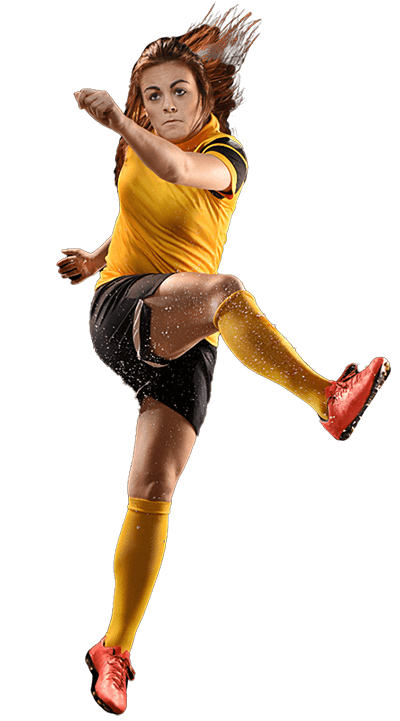The PCL is larger and thicker than the ACL, therefore larger forces are required to cause injury. Common causes of injury are falling heavily onto a bent knee, sporting injuries (especially in AFL, rugby, soccer, and netball), and motor vehicle/motorbike accidents. The injury can occur in isolation, or be part of a multi-ligament knee injury.
PCL Rupture: Symptoms
Injury to the PCL requires a lot of force and is usually associated with an acute painful episode. The knee often swells after injury, and you may find it difficult to put your full weight through the knee. Some people find the knee feels unsteady, and it may be difficult to participate in your normal sporting activities. Walking down stairs can be particularly difficult.
PCL Rupture: Diagnosis
Diagnosing PCL injury can be more difficult than diagnosing ACL injury, as findings are generally subtle. PCL injury may be suspected when there is a history of recent knee trauma with swelling and giving way. During examination, the injured knee may appear to sag backwards when bent, and it may hyperextend. Usually, the diagnosis is confirmed with an MRI scan. Occasionally an MRI scan can look normal, especially if the injury was quite some time ago.
PCL Rupture: Treatment
Non-surgical treatment:
Isolated PCL injuries can often be managed without surgery. The ligament does not always heal completely, however near full function from the knee can still be achieved with rehabilitation. Non-surgical treatment will often require a period of knee bracing, and you may benefit from some physiotherapy.
Surgical treatment:
There are some occasions when surgery is recommended for a PCL injury. This is usually when the injury is severe and associated with a significant amount of knee joint laxity, or when a period of non-surgical treatment has been trialled unsuccessfully. If the PCL injury is associated with other ligament injuries (multi-ligament knee injury) surgical treatment is recommended sooner rather than later.
Direct repair of the PCL is usually not possible). As a result, a PCL reconstruction is performed where a tendon graft is taken from another part of the body to replace the injured PCL, this is known as an autograft.
Common examples of autograft sites include the hamstring, quadriceps or patella tendons. Synthetic grafts (LARS) and grafts from donors (allograft) are other options which may be considered. Full recovery from PCL reconstruction surgery usually takes 6-12 months, depending on the nature of the injury and the type of surgery performed.
PCL injuries are often complex and require an individual approach to treatment. I will discuss these in more detail with you at your appointment.
If you have ruptured your PCL, please make an appointment to discuss your treatment options.



